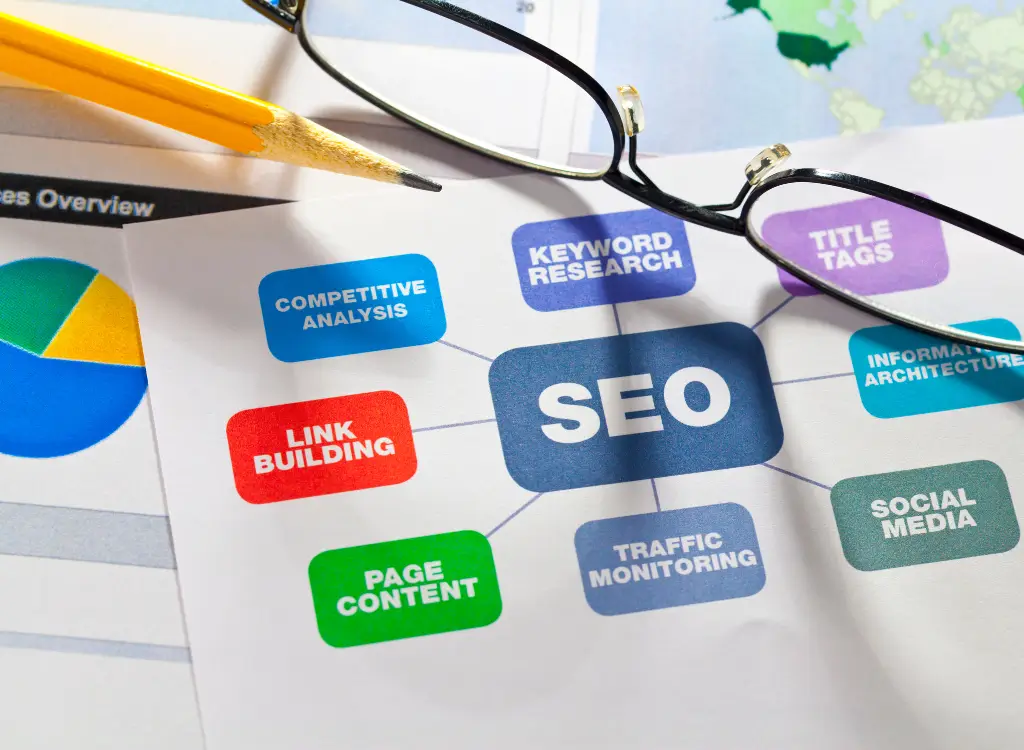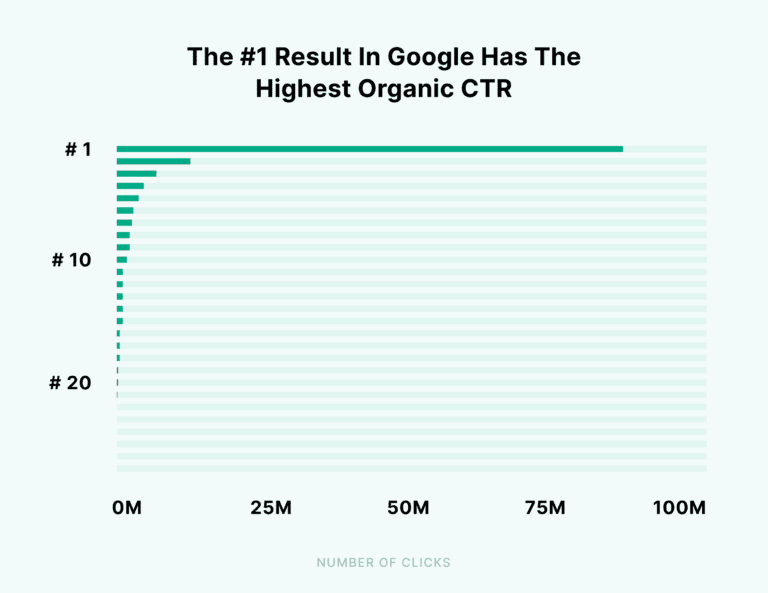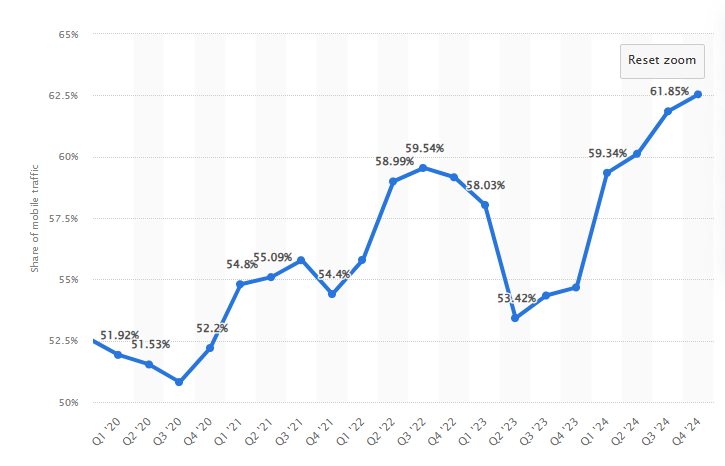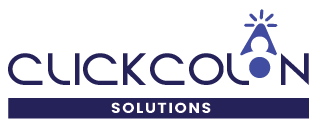Page Contents
ToggleYou’ve just created an amazing website for your business. It is beautiful and easy to work with, it provides everything your customers will need. But here’s the catch, Nobody can find it. Your website is lying on page five of Google, out of the sight of prospective customers. This is where SEO saves the day.

What is SEO?
SEO or search engine optimization is the process of optimizing your website and website content to appear on search engine result pages (SERPs) for different keywords. The SEO definition covers a range of strategy and tactics all focused on getting your website more exposure in search engine results. So, let’s start with some basics, and when we say search engine optimization basics, we mean it.
On-Page SEO
This involves optimizing elements directly on your website, including:
- URL structure
- Internal linking
- Image optimization
- Content quality and relevance
- Title tags and meta descriptions
- Header structure (H1, H2, H3 tags)
Off-Page SEO
These are optimization efforts that happen outside your website:
- Social media engagement
- Building high-quality backlinks
- Local citations and directory listings
Technical SEO
This focuses on the backend structure of your website:
- XML sitemaps
- SSL certificates
- Schema markup
- Mobile responsiveness
- Site speed optimization
These SEO optimization techniques look simple but many fail to do and often lead to the mistakes.
The click-through rate of a number one ranked search result is 27.6%, but by the time you get to number 10, the rate is down to 2.4% according to a landmark study of 11.8 million Google search results by Backlinko.

This is proof positive of how important it is to have a good understanding of what SEO is and how to utilize it properly. Being on the first page of a Google search can make the difference between being found and being forgotten.
How Does SEO Work?
To understand how search engines work, imagine that you are dealing with a huge library which piles billions of books (that’s websites) but no catalog. Google and such search engines act like a librarian who:
- Crawl: Bots, known as crawlers, or spiders, search engine bots, traverse the web in a structured way, finding and re-finding web pages.
- Index: And then analyze and store information about these pages in a huge database.
- Rank: Algorithms scour indexed websites and serve up the most relevant results to someone’s query.
Over 200 ranking factors are used by search engines in their algorithm to decide on which pages are the most applicable and authoritative. These factors include:
- Backlink quality
- Page loading speed
- Mobile-friendliness
- User engagement metrics
- Content relevance and quality
As per the Internet Live Stats, Google processes over 3.5 billion searches every day. Every search is an opening for your business to establish a new connection with a potential customer, but only if you have a website that is on page one.
Search Engine Optimization success strategy centers around publishing high quality, relevant content, and really assisting users, all according to the guidelines of the search engine. The Search Quality Evaluator Guidelines of Google favour a user-centric strategy and value contents that show EEAT (experience, expertise, authoritativeness, trust), a user-friendly content.
Why Does SEO Matter?
SEO is an unavoidable necessity for any business in an era of Internet technology. So, what does the data show and why is SEO so important in the first place?
Increased Visibility and Traffic
According to a study by BrightEdge, organic search accounts for 53% of all website traffic, it’s the single largest channel. In addition, data compiled by Digital Marketing Institute indicates that a whopping 75% of users never scroll beyond the first SERP. Ranking well equals more eyes on your business.
Cost-Effective Marketing
SEO leads to organic results which last infinitely while paid advertisements require payment per user. SEO leads on the other hand have a 14.6% close rate, while other strategies like cold calls or print ads have an average close rate of 1.7% (HubSpot). This contrast nicely frames out the cost effectiveness of SEO for new client acquisition and ROI.
Enhanced User Experience
With Google’s Page Experience update, user experience has kind of been pushed to the forefront with metrics like Core Web Vitals starting to play a role in rankings. A good SEO strategy delivers:
- Faster page loading
- Clear site navigation
- Mobile-responsive design
- Relevant, valuable content
These enhancements not only help rankings but they help keep your users on your site longer and convert.
Building Trust and Credibility
Users are more likely to trust companies that show up on the first page of Google than those that do not. It’s because high rankings get you to that authority and reliability that people look for, and that can mean more visitor trust and more business.
Competitive Advantage
If there are competitors in your niche optimizing and you’re not, then they are gobbling up prospects that could have been yours.
Measurable ROI
SEO offers measurable results. Measuring success with the help of tools like Google Analytics, you should be able to see increased organic traffic, keyword position, and the kind of leads and revenue your digital efforts are driving.
The Evolution of SEO
Learning about the history of the fine art of SEO work allows to understand why SEO optimization nowadays is oriented towards good user experience and good quality content, rather than other effective techniques in the past.
Early Days of SEO
In the 1990s and early 2000s, SEO basics were simple. Early ranking factors included:
- Meta keyword tags
- Backlink quantity rather than quality
- Domain age and exact match domains
- Keyword density (creating keyword stuffing in the process at times)
These tricks often worked, but they made search results messy and unhelpful.
The Rise of Content-Driven SEO
Major algorithm updates changed everything:
- Google Panda (2011): Targeted low-quality, thin content.
- Google Penguin (2012): Manipulative and unnatural backlinks were the focus.
- Hummingbird (2013): Moved focus toward search intent and conversational queries.
The E-A-T principles of Google; Expertise, Authoritativeness and Trustworthiness, have become the core of the new definition of SEO. Later one more E is added which represents Experience and it became EEAT now.
Mobile and Local SEO Revolution
With more web traffic from mobile than ever before; 65.5% of all global traffic is generated from mobile devices according to Statista.

Google implemented mobile-first indexing in 2018. At the same time, local SEO is also boomed.
AI-Driven SEO (AIO)
SEO practice has changed forever with the entry of artificial intelligence into systems like:
- RankBrain (2015): Employs machine learning to process more advanced search terms.
- BERT (2019): Enhanced for context and nuances in language.
- MUM (2021): Reasons over multiple formats and languages.
You can see some examples of AI’s impact on content optimization, predicting what users will search for, and voice/conversational search. In 2024, more than 43% of marketers are using AI tools to get their web content optimized.
Generative Experience Optimization (GEO)
The future that SEO has evolved into is Generative Experience Optimization (GEO), wherein AI lies at the center of immersive experiences. Pages that are optimized for AI-generated search summaries as well as conversational platforms, receive significant lifts in both visibility as well as user engagement signals.
FAQs
Key metrics include organic traffic growth, keyword rankings, conversion rates, and engagement metrics like bounce rate and time on page. Using tools like Google Analytics and Search Console makes tracking progress easier.
SEO increases your website’s visibility, drives organic traffic, builds trust and credibility, improves user experience, and offers a higher ROI compared to many other marketing channels.
Absolutely. SEO helps small businesses compete with larger companies by making their website easier to find for local and niche audiences.
SEO is an ongoing process, but you can expect to see initial improvements within 6-8 months with consistent effort. Long-term results and reaching the top positions can take up to a year or more depending on competition and industry.
Basic SEO can be handled in-house with some learning, but for the best results especially in competitive industries, working with an experienced SEO agency can make a significant difference.
Conclusion
SEO is no longer optional in today’s digital-first world. It’s the key to increasing your website’s visibility, driving organic traffic, and building trust with your audience. By focusing on quality content, user experience, and staying updated with the latest trends, businesses can achieve sustainable growth. Ready to take your online presence to the next level? Explore our SEO services and let us help you succeed.

